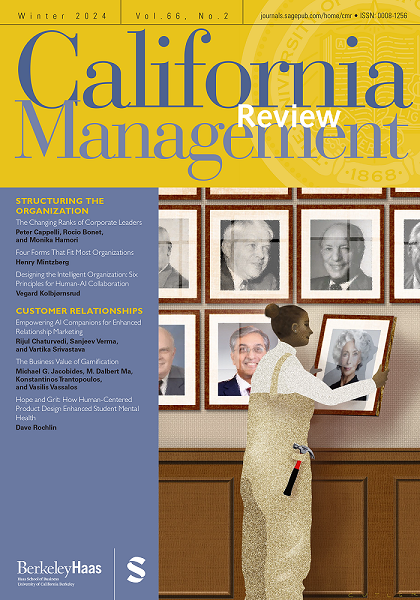Chipping Away at a Grand Challenge: A ligning Goal and Governance to Reduce Homelessness
IF 7.3
2区 管理学
Q1 BUSINESS
引用次数: 0
Abstract
When many of today’s deepest problems are intractable, how can public, private, and nonprofit actors collaborate to mitigate negative local effects? Given the open-endedness of any collective effort to “chip away” at a grand challenge, these intersectoral collaborations must align the scope of a shared goal with the governance arrangements distributing decision-making authority. By juxtaposing insights from fieldwork on intersectoral collaborations formed to aid local homeless communities in São Paulo (Brazil), California (USA), and Manchester (UK), this research presents four goal-governance alignments to achieve coordinated collective action. To pursue a targeted goal, an organization can set up or join a local structure of centralised (消除一个巨大的挑战:减少无家可归的目标和治理
当当今许多最深层的问题都难以解决时,公共、私人和非营利机构如何合作来减轻对当地的负面影响?考虑到任何集体努力“削弱”一个重大挑战的开放性,这些跨部门合作必须使共同目标的范围与分配决策权的治理安排保持一致。在巴西圣保罗、美国加利福尼亚和英国曼彻斯特,通过对部门间合作的实地考察,本研究提出了四种目标治理方案,以实现协调一致的集体行动。为了追求目标,组织可以建立或加入集中式(partnership)或分布式(Coalitions)决策权的本地结构。为了追求更广泛的目标,一个组织可以通过同时参与多个相互加强的地方伙伴关系和联盟来发展成为一个使命。或者演变成一场运动,不仅要增加集体行动的地方结构,还要采用参与架构,以鼓励组织管理控制之外的第三方进行大规模合作。
本文章由计算机程序翻译,如有差异,请以英文原文为准。
求助全文
约1分钟内获得全文
求助全文
来源期刊

California Management Review
Multiple-
CiteScore
18.40
自引率
3.00%
发文量
23
期刊介绍:
California Management Review (CMR) serves as a vital link between academia and management practice, offering leading-edge research with practical applications. Edited at UC Berkeley’s Haas School of Business, CMR covers a wide range of management topics, including innovation, strategy, sustainable practices, and human resources. CMR ranks among the top management journals globally, distributing articles through outlets like Harvard Business School Publishing and SAGE Publishing. Focused on bridging academia and practice, CMR ensures that all articles are based on rigorous academic research while providing actionable insights for managers. In addition to regular issues, CMR publishes special issues and sections on relevant topics, often guest-edited by leading faculty. Recent special issues have covered dynamic capabilities, city innovation, big data, and intellectual property management.
 求助内容:
求助内容: 应助结果提醒方式:
应助结果提醒方式:


